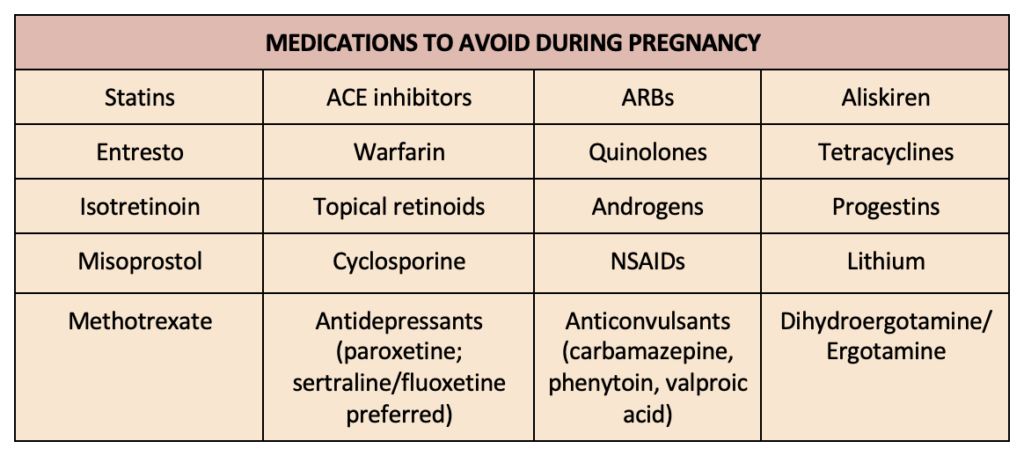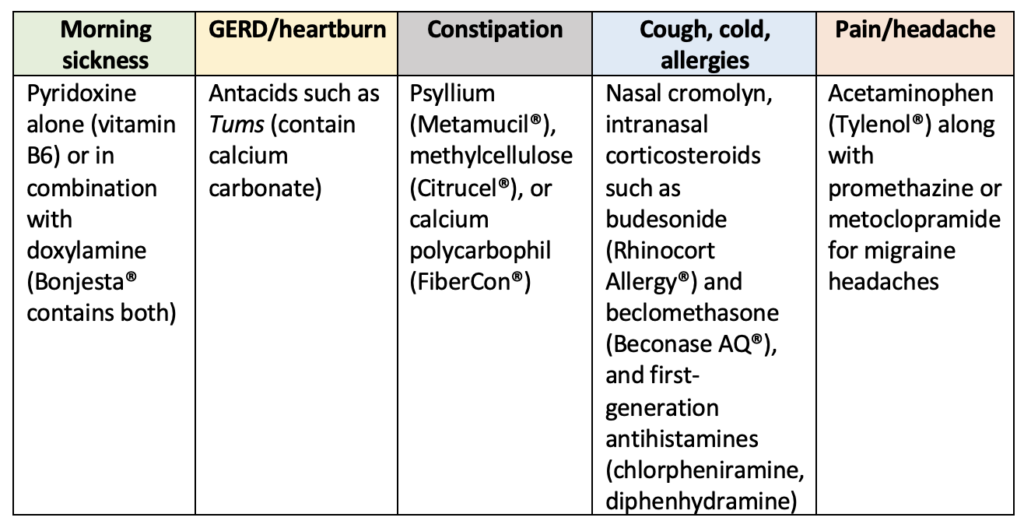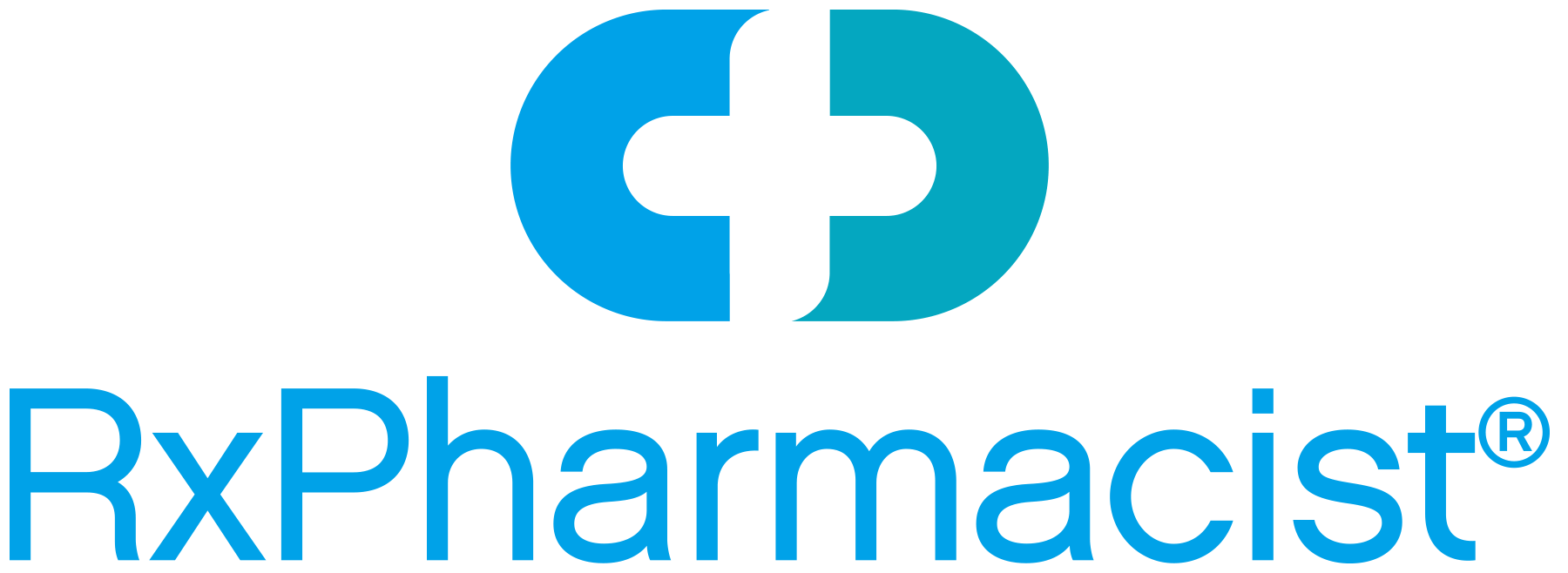Are you taking medication? Are you pregnant? Are you pregnant AND taking medication? These are important questions to consider especially for women of childbearing age as medication use during pregnancy is quite common. Per the CDC, 9 out of 10 women take some type of medication with 7 out of 10 women taking at least one prescription medication.1

Women who are pregnant and/or lactating experience major physiological and psychological changes that require special attention to medication and healthcare. Pharmacists are in a unique position to offer additional advice in terms of medication safety, nutritional support, and general well-being in managing acute pregnancy issues. Not only does this ensure that the mother is provided with the safest and utmost care possible, but that the health of the baby is considered in equal measure as well.
Medication Safety
For all children and adults, it is important to speak to a doctor prior to using any medication, whether it’s a prescription drug or an over the counter (OTC) drug. During pregnancy and lactation, this warning is ever more critical to remember.
Taking inappropriate medication without proper consultation with a doctor may cause some undesirable effects in certain adults who are yet otherwise healthy. Women who are pregnant and/or lactating however, are more vulnerable for experiencing harm from certain kinds of medications, as is the baby.
Drugs that are considered toxic to the developing fetus during pregnancy (i.e., result in birth defects) are known as teratogenic drugs, and pose the most risk during the first trimester. Some medications may also decrease milk production during lactation. These drugs should be discontinued before pregnancy or once a woman is determined to be pregnant and safer options should be utilized instead.

Nutritional Support- Vitamin and Mineral Supplementation
A developing baby needs an appropriate amount of nutrients. Two vital examples of important nutritional support are folic acid and calcium and vitamin D. Deficiencies in folic acid (i.e., folate) causes birth defects of the brain and spinal cord known as neural tube defects, whereas deficiencies in calcium and vitamin D can hinder the development of the skeletal system.
Folic acid: Foods rich in folic acid include green leafy vegetables, dried beans, cereals, and orange juice. The recommended dietary folate equivalent (DFE) per day is 600 mcg DFE per day during pregnancy.
Calcium and Vitamin D: During pregnancy, 1000 mg per day of calcium and 600 IU per day of vitamin D are recommended. This can either be achieved through supplements or natural sources. Some foods rich in calcium include milk, cheese, yogurt, and green leafy vegetables.6 Good natural sources for Vitamin D include sunlight, milk, and fish/salmon.6
Common Pregnancy Discomforts and How to Treat Them
While not an all-inclusive list of all issues experienced during pregnancy, below are some drug treatments for common discomforts. Lifestyle measures or behavioral interventions will always be first line before implementation of drug therapy. These include eating smaller, more frequent meals while avoiding spicy food for morning sickness and GERD/heartburn. Drinking more water and increasing physical activity helps with constipation. Using hot/cold packs and relaxation/stress management techniques are useful in managing pain and headaches.

Enrolling in a pregnancy registry is also encouraged to help gather information on the use of a drug during pregnancy. For each woman, the journey will be unique, therefore personalized guidance from healthcare professionals remains paramount. Through collaboration and consultation with healthcare providers, making informed choices about medications and supplements, and focusing on proper nutrition, women can embrace pregnancy with confidence and optimal health. Some helpful resources for additional information are:
● LactMed
● March of Dimes
● Mother to Baby
● InfantRisk Center
● Office on Women’s Health
Midrara Kashmari
RxPharmacist Team
References:
- CDC. Pregnant or thinking of getting pregnant? Centers for Disease Control and Prevention. Published July 19, 2018. https://www.cdc.gov/pregnancy/meds/treatingfortwo/facts.html.
- DiPiro JT, Yee GC, Haines ST, Nolin TD, Ellingrod V, L. Michael Posey. DiPiro’s Pharmacotherapy: A Pathophysiologic Approach, 12th Edition. McGraw Hill Professional; 2023.
- Maryland SHL PharmD Primary Care Clinical Pharmacy Specialist Kaiser Permanente Mid-Atlantic States Clinical Pharmacy Services Silver Spring. OTC Medication Use in Pregnancy and Breastfeeding. www.uspharmacist.com. https://www.uspharmacist.com/article/otc-medication-use-in-pregnancy-and-breastfeeding.
- Jin J. Safety of Medications Used During Pregnancy. JAMA. 2022;328(5):486. doi:https://doi.org/10.1001/jama.2022.8974.
- American College of Obstetricians and Gynecologists. Nutrition During Pregnancy. www.acog.org. Published March 2022. https://www.acog.org/womens-health/faqs/nutrition-during-pregnancy.

